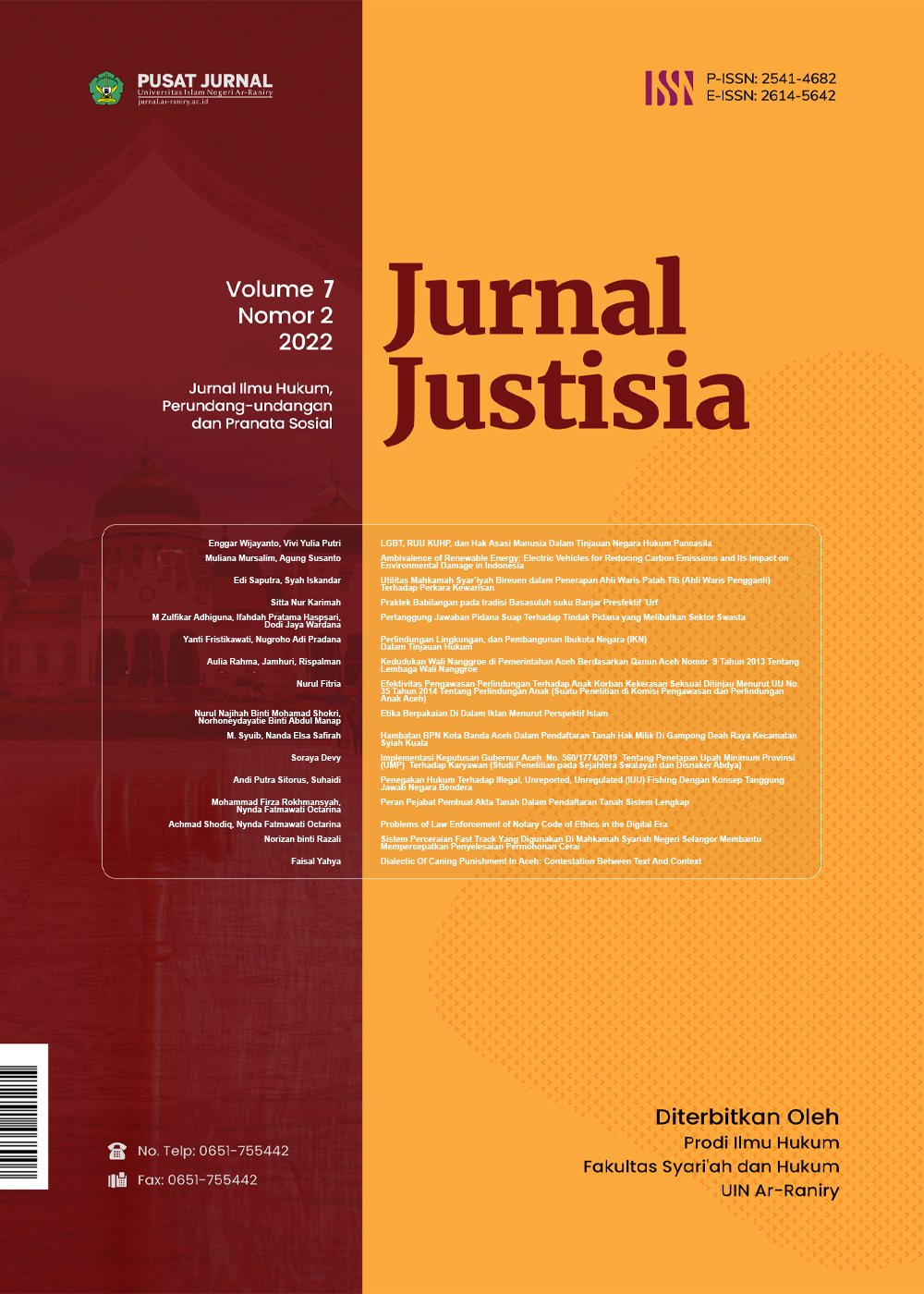LGBT RUU KUHP dan Hak Asasi Manusia dalam Tinjauan Negara Hukum Pancasila
DOI:
https://doi.org/10.22373/justisia.v7i2.14495Abstract
Legalitas Kelompok LGBT di Indonesia masih menjadi perdebatan apakah sebagai perbuatan yang dilarang secara tegas, atau dibolehkan menurut hukum positif. Pandangan untuk memasukkan LGBT ke dalam unsur tindak pidana kesusilaan di RUU KUHP menjadi polemik terutama menyangkut aspek Hak Asasi Manusia dan Prinsip Negara Hukum Pancasila. Dengan pendekatan filsafat dan politik hukum, tulisan ini berusaha memaparkan bagaimana persoalan LGBT dilihat dari perspektif HAM dan Hukum berbasis Pancasila sebagai cita hukum nasional atau Rechtssidee. Menggunakan studi literatur, tulisan ini disusun melalui data sekunder meliputi: bahan hukum primer dan sekunder.
Downloads
Published
Issue
Section
License
The Authors submitting a manuscript do so on the understanding that if accepted for publication, copyright of the article shall be assigned to Jurnal Justisia : Jurnal Ilmu Hukum, Perundang-undangan dan Pranata Sosial, Ar-Raniry State Islamic University, Indonesia as the publisher of the journal.
Jurnal Justisia : Jurnal Ilmu Hukum, Perundang-undangan dan Pranata Sosial right of first publication with the work simultaneously licensed under Creative Commons Attribution-ShareAlike 4.0 International License (CC BY-SA 4.0) that allows others to share (copy and redistribute the material in any medium or format) and adapt (remix, transform, and build upon the material) the work for any purpose, even commercially with an acknowledgment of the work's authorship and initial publication in Jurnal Justisia : Jurnal Ilmu Hukum, Perundang-undangan dan Pranata Sosial. Authors are able to enter into separate, additional contractual arrangements for the non-exclusive distribution of the journal's published version of the work (e.g., post it to an institutional repository or publish it in a book), with an acknowledgment of its initial publication in Jurnal Justisia : Jurnal Ilmu Hukum, Perundang-undangan dan Pranata Sosial. Authors are permitted and encouraged to post their work online (e.g., in institutional repositories or on their website) prior to and during the submission process, as it can lead to productive exchanges, as well as earlier and greater citation of published work (See The Effect of Open Access).

